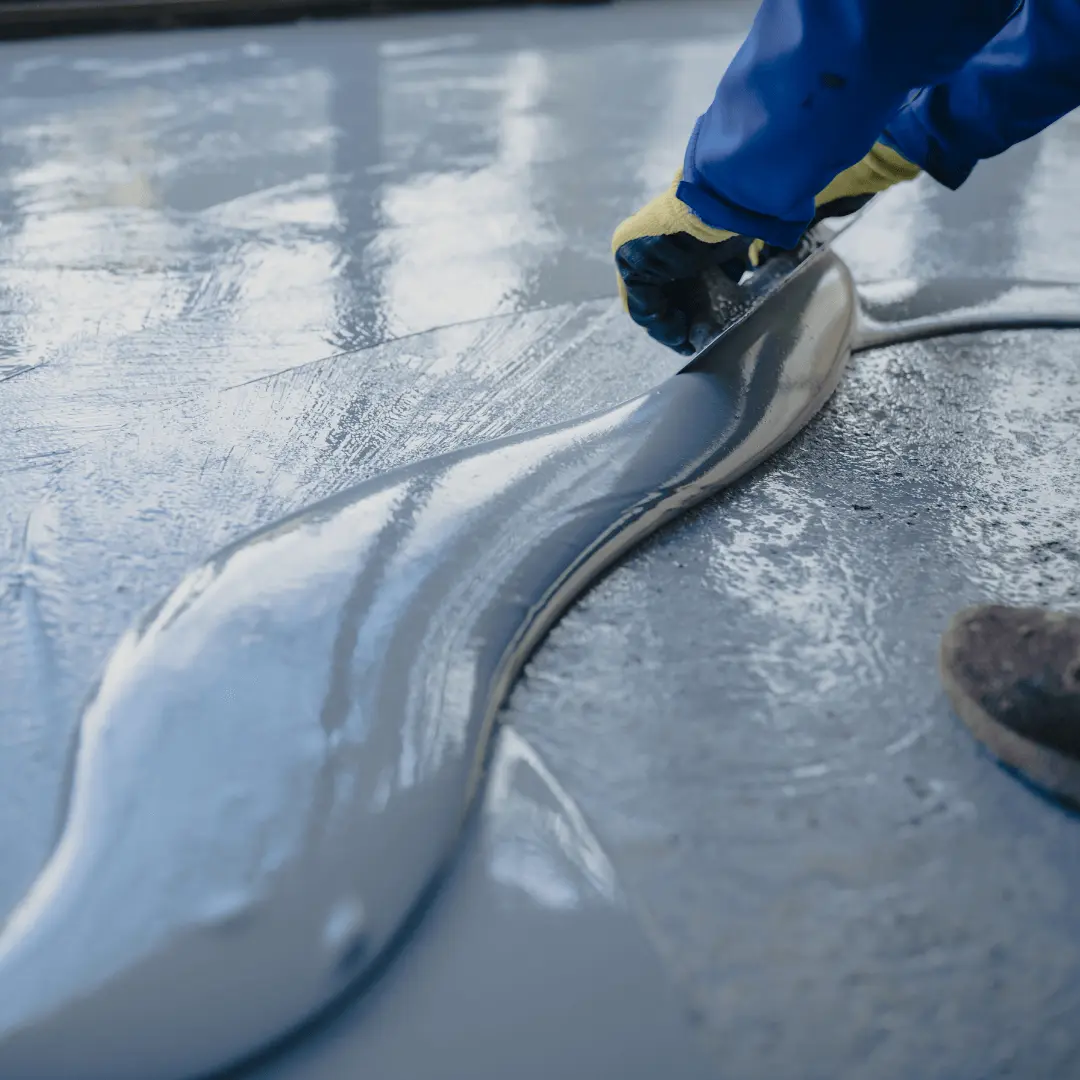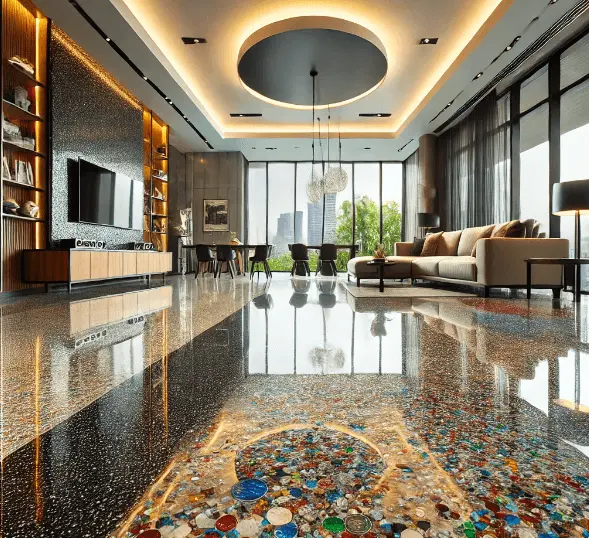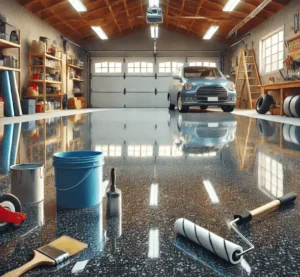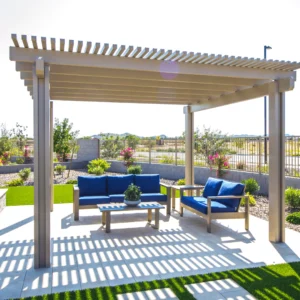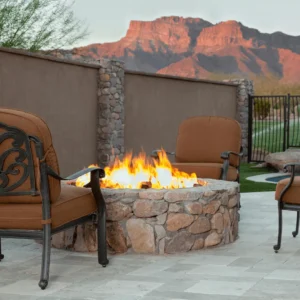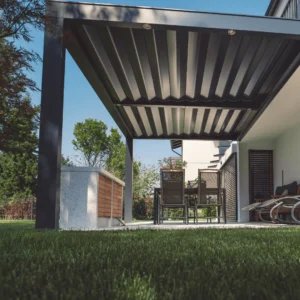The Science Behind the Strength of an Epoxy Floor
Epoxy flooring has gained popularity for its remarkable durability, aesthetic appeal, and versatility. Commonly found in garage floors, residential flooring, and commercial environments, epoxy floors offer a robust solution that meets various needs. Understanding the science behind the strength of an epoxy floor reveals why it is a preferred choice for many applications.
What Makes Epoxy Floors Strong?
This section delves into the composition and properties of epoxy coatings and resins, explaining how their chemical makeup contributes to the incredible durability and strength of epoxy floors.
Epoxy Coating
Epoxy coating is a protective layer applied to concrete floors, creating a seamless, glossy finish. This coating consists of epoxy resins, which are key to its strength. Epoxy resins are thermosetting polymers that form tight cross-linked bonds, resulting in a hard, durable, and appealing surface that can withstand heavy loads and resist damage.
Epoxy Resins
Epoxy resins are the backbone of epoxy flooring. Their molecular structure provides exceptional adhesion, ensuring the coating firmly bonds to the concrete surface. This bond is crucial for the floor’s durability, preventing chipping, cracking, and peeling even under significant stress.
Surface Preparation for Epoxy Floors
Effective surface preparation is critical for the longevity and performance of epoxy floors. Here, we discuss the importance of preparing the concrete surface and the tools and materials needed to ensure optimal epoxy adhesion.
Suitable Surface Preparation
Proper surface preparation is essential for achieving a strong epoxy finish. Without it, the epoxy may not adhere correctly, leading to premature failure.
Concrete Surface
The condition of the concrete surface plays a vital role. A clean, dry, and roughened concrete surface ensures optimal bonding. Any contaminants, moisture, or smoothness can compromise the bond, weakening the epoxy floor.
Materials for Surface Preparation
A wide range of materials such as concrete floor grinding equipment are necessary for surface preparation. These tools help create the right surface profile, ensuring the epoxy resin adheres properly.
Chemical and Abrasion Resistance
Epoxy floors are abrasion-resistant and chemical-resistant, making them ideal for harsh environments. This section explores how the epoxy’s resistance properties protect it from spills, stains, and physical wear.
Chemical Resistance
Epoxy resins are known for their excellent chemical resistance. This property makes epoxy floors ideal for environments exposed to chemical spills and exposure, such as laboratories and industrial settings. The epoxy coating acts as a barrier, preventing chemicals from penetrating and damaging the concrete surface.
Abrasion Resistance
Epoxy floors also offer superior abrasion resistance. This quality protects the floor from wear and tear caused by heavy traffic, equipment, and other abrasive forces. As a result, epoxy floors maintain their appearance and functionality over time.
The Application Process
Professional flooring companies ensure the long-term performance and durability of any residential and commercial epoxy flooring job. Apex Epoxy Flooring, for instance, excels in using precise application techniques to achieve flawless results.
Surface Clean and Profile
Before applying the epoxy, the surface must be thoroughly cleaned and profiled. This involves removing any dust, debris, or contaminants and creating a rough texture to enhance adhesion.
Product Application and Mixing
Correct mixing and application techniques are critical. The epoxy resin and hardener must be mixed in precise proportions to ensure proper curing and strength. Incorrect mixing can lead to weak spots and product failure.
Cure Time
Curing time is vital for the epoxy to reach its maximum strength. Depending on the product, the floor may require several days to cure completely. During this period, it is essential to protect the surface from foot traffic and other disturbances.
Enhancements and Additives
Enhancements and additives can significantly boost the functionality and appearance of epoxy floors. This part examines options like metallic finishes and UV-resistant coatings, which enhance both the utility and appeal of the flooring.
Metallic Epoxy
Adding metallic pigments to epoxy resins creates a visually stunning effect without compromising strength. Metallic epoxy floors are popular for both residential and commercial applications due to their unique appearance.
Aliphatic Epoxy Floor Coating
Aliphatic epoxy coatings offer enhanced UV resistance and color stability, making them suitable for outdoor applications. These coatings maintain their appearance and integrity even when exposed to sunlight and temperature fluctuations.
UV Resistance
UV-resistant coatings ensure the longevity of epoxy floors. By protecting against UV damage, these coatings prevent discoloration and degradation, keeping the floor looking new for years.
Conclusion
The strength of an epoxy floor lies in its epoxy coating, surface preparation, and resistance to chemical and abrasive damage. Proper application and curing techniques further enhance its durability, while additives like metallic pigments and UV-resistant coatings offer additional benefits. Whether for a garage, commercial space, or residential area, epoxy flooring provides a reliable and aesthetically pleasing solution. Ready to upgrade your floors with durable epoxy? Contact the experts at https://apexflooringllc.com/ today!
